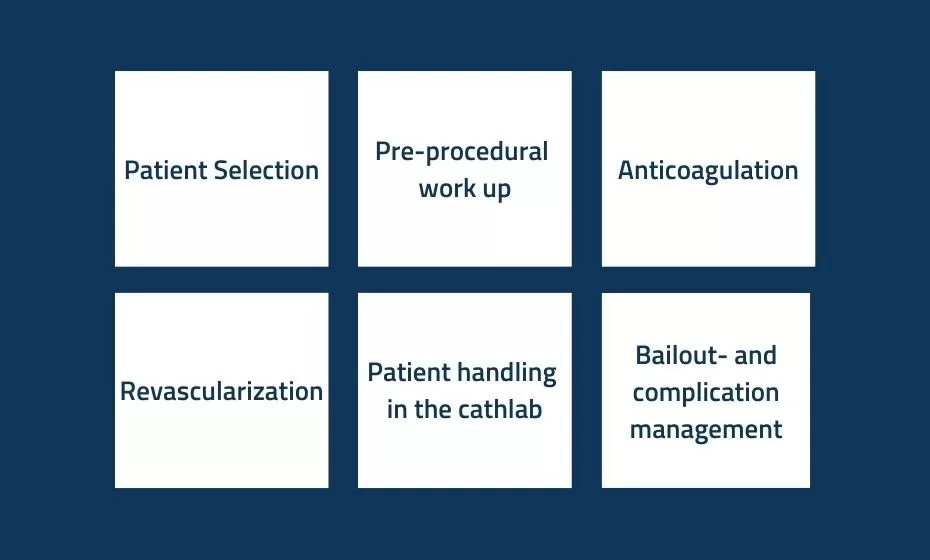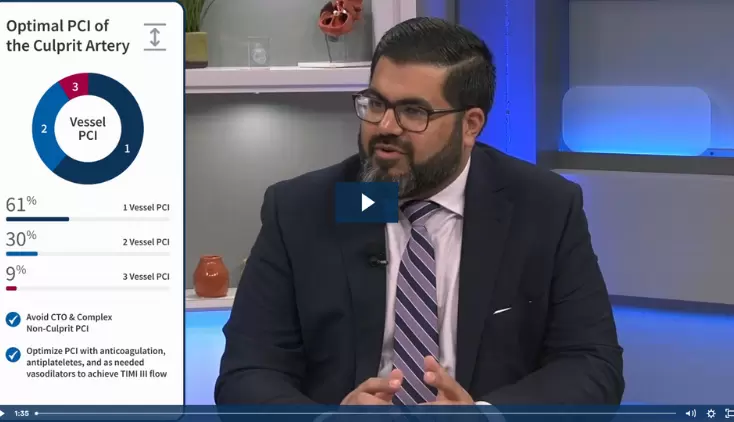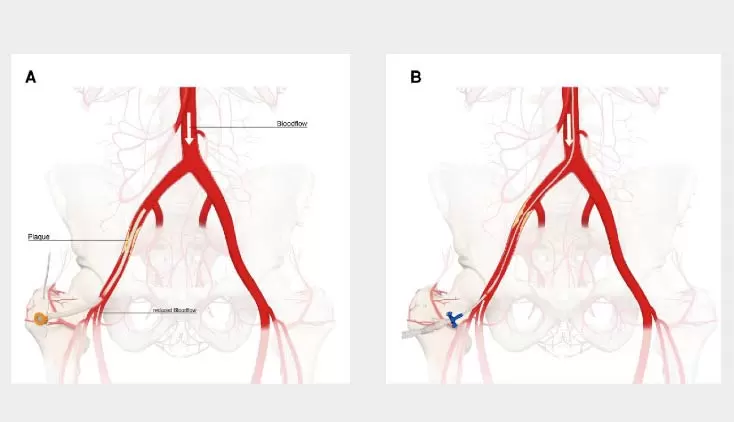Clinical Research & Data, Protected PCI
TCT 2022: Influential Trials in High-Risk PCI: Shaping the Future of Ischemic Heart Failure Therapy
Jonathan Hill, MA, MBChB, FRCP, from Royal Brompton Hospital in London, UK, discusses influential trials in high-risk PCI. He explains how PCI is now performed in patients with increasing anatomic complexity and in patients with high surgical risk. The PROTECT series of studies, as well as RESTORE EF, have studied this high-risk population and are shaping the future of ischemic heart failure therapy. Key messages from those studies include:
- PROTECT II: More complete and optimal revascularization with Impella® heart pumps linked to improved outcomes; 47% reduction in post-discharge MACCE events; reduction in MAE with extensive revascularization
- PROTECT III: Improved outcomes in patients with severely depressed LVEF undergoing PCI with contemporary practices
- RESTORE EF: Improved ejection fraction (EF) following contemporary high-risk PCI; more pronounced EF improvement in severe and moderately depressed EF patients; heart failure and angina symptom improvement in near normal EF patients
“This is a very consistent message that’s coming through from studies where contemporary practice reflects the improvement in LV function,” Dr. Hill emphasizes. He explains that he’s often asked to treat transplant turndown patients with EFs in the range of 10-15%. “And what we’re seeing consistently, time and time again, is in people with viability and with ischemia, who have no surgical option, with terrible ventricles, that we are making dramatic improvements in their ejection fraction.”
Dr. Hill then turns to “the elephant in the room,” the recently published REVIVED BCIS-2 study, which concluded that revascularization with PCI did not reduce death or hospitalization for heart failure in patients with severe ischemic LV systolic dysfunction who received optimal medical therapy. He explains that the patient population in this study was considerably less sick than patients in the PROTECT series, with only 23% having NYHA Class III/IV heart failure and only 3% of patients receiving any type of mechanical support. Yet he notes that even in this study, there was a 13% reduction in all-cause death or HF hospitalization in PCI patients with a revascularization index (RI) of 80% or higher—“a signal that complete revasc in this population improves outcomes.”
Dr. Hill concludes with an introduction to the hypothesis and study design for PROTECT IV, which is currently underway. “We’re at an absolutely crucial point in the evolution of our specialty,” he states. “All of the available registry and upcoming randomized controlled study data with Impella-supported patients is aiming for a class 1 recommendation, and that, I believe, is where we’re going to be heading very, very soon.”
IMP-3637


